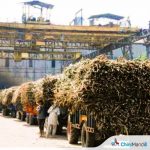
Balrampur Chini Mills Limited (BCML), one of India’s leading integrated sugar producers, warmly welcomes the Uttar Pradesh Government’s approval of the country’s first comprehensive bioplastic policy. Revolutionizing sustainability, this initiative tackles plastic pollution head-on, promoting eco-friendly alternatives and propelling India towards the target of Net Zero by 2070.
PLA offers a triple advantage: biobased production, biodegradability under industrial compost conditions, and chemical recyclability, making it a game-changer in sustainable material solutions. BCML, all set to establish India’s first industrial PLA (polylactic acid) bioplastic manufacturing plant, views the newly approved policy as a critical catalyst for providing an impetus to the developing bioplastics sector as the policy offers extensive incentives such as –
• Companies investing ₹1000 crore or more will receive a subsidy of up to 50% of capital
investment for 7 years.
• Interest subvention will be given for a period of 7 years.
• 100% reimbursement of SGST will be granted for 10 years.
• Electricity will be duty-free for a duration of 10 years.
• Stamp duty exemption or remission will apply to transactions made one year before or
after the policy cutoff date
• The overall benefits under the policy not to exceed 200% of the investments made
Beyond financial incentives, the policy fosters innovation by supporting research and development in new bioplastic materials and their end-of-life solutions. It gives opportunities beyond the SMEs, including the waste management service providers, municipalities, and recycling operators to participate in the bioplastic supply chain as well. By linking agriculture to industry, the policy promotes the use of biomass—such as sugarcane, a key raw material for PLA bioplastics—thereby supporting the growth of agro-based economies while addressing the global demand for sustainable materials.
Mr. Vivek Saraogi, Chairman and Managing Director of Balrampur Chini Mills Limited, remarked, “The Uttar Pradesh Government’s bioplastic policy is a visionary step in the right direction. The widespread use of conventional plastics has exacerbated our carbon footprint, making a shift towards bioplastics essential. With India being the second largest producer of sugarcane, a major biomass source for bioplastics, this policy not only helps reduce plastic waste but also strengthens India’s path to a circular economy.”
He further added, “This policy, alongside the Central Government’s BioE3 framework, offers a comprehensive regulatory environment to promote bio-manufacturing and energy independence. We believe this strategic intervention will attract significant investments in the bioplastics sector and drive India towards a greener economy.”
Ms. Avantika Saraogi, Executive Director, BCML said, “I wholeheartedly commend the Uttar Pradesh Government for pioneering India’s first bioplastic policy, a game-changer in our fight against plastic pollution. As traditional plastic consumption continues to rise, threatening our environment, this forward-thinking policy couldn’t have come at a better time. It will catapult India’s nascent bioplastics industry forward, inspiring businesses to join the sustainable value chain. The benefits are multifaceted: reduced plastic pollution, job creation in Uttar Pradesh, and a significant decrease in carbon footprint through lower GHG emissions.
By harnessing renewable resources like sugarcane, we’re not only mitigating climate change but also fostering economic growth. This policy is a pivotal step toward a greener future, and I’m proud to be part of it. ”
BCML’s upcoming PLA plant has a capacity of 75000 tonnes per annum and is located adjacent to the company’s Kumbhi Sugar mill in Uttar Pradesh. As the company prepares to lead this transformative shift in India’s manufacturing landscape, it expects the policy to inspire further investments and innovation in bioplastics, benefiting both the environment and the economy. By tapping into India’s extensive biomass resources, this policy can establish the country as a key player in the global bio-manufacturing landscape.











